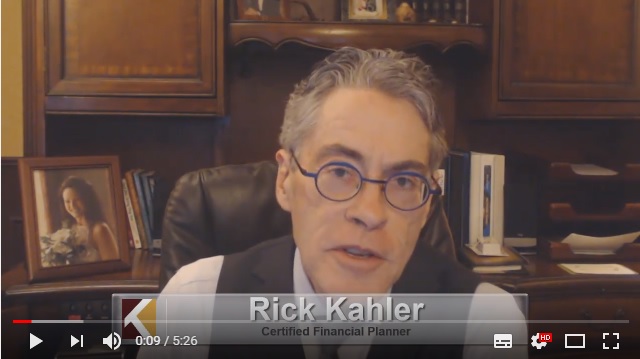The following blog is by Rick Kahler originally published in Rick Kahler’s Blog – Financial Awakenings.
Would you like to build up a million-dollar nest egg by the time you retire? For middle-class earners, that goal is challenging but possible if you start at age 25 and save $1750 a month. Many married couples could do this by maxing out their 401(k) contributions. Or you could take the route that many people follow and build a small business into a million-dollar asset.
What if you want to accumulate a billion-dollar nest egg instead? Starting at the same age of 25, you would need to save $21 million a year. Good luck with getting any employer match on that.
There’s a vast difference between a million and a billion. It’s completely misleading when activists, politicians, and the media refer glibly to “millionaires and billionaires” as if the two are almost interchangeable. Someone with a net worth of one million dollars isn’t even close to being in the same category as someone worth one billion.
Here are a few more examples to clarify the difference:
• One million seconds from now is about 11 and a half days away. One billion seconds from now is about 31 and a half years in the future.
• A million hours ago was 114 years in the past, early in the 20th century; our ancestors were using electricity and telephones. A billion hours ago was over 114,155 years in the past; our ancestors had evolved into Homo sapiens but were still using primitive stone tools.
• Put one million ants on one side of a scale and a female Asian elephant on the other side. The million ants, at around six pounds, would hardly register against the elephant’s three tons. Put a billion ants on the scale, however, and they would balance or even outweigh the elephant.
• One million pennies stacked on top of each other would make a tower nearly a mile high. One billion pennies stacked on top of each other would make a tower almost 870 miles high.
• If you earned $45,000 a year and stashed it all under your mattress, you’d have one million dollars at the end of 22 years. To accumulate one billion dollars at that same rate, you’d need the help of your many-times-great grandchildren, because it would take 22,000 years.
In today’s world, being a millionaire represents financial security, not vast wealth. At a withdrawal rate of 3%—the amount most experts consider sustainable—an investment portfolio of one million dollars will provide an income of $30,000 a year. Combined with Social Security, that would be enough to live comfortably but not lavishly in retirement.
Three percent of one billion dollars, on the other hand, will furnish an income of $30 million a year; definitely private jet and gated estate territory.
If millions and billions aren’t challenging enough, here’s a quick look at trillions. One trillion is a million millions, or a thousand billions. It would take one thousand elephants to balance the weight of one trillion ants. Astronomers estimate the number of stars in our Milky Way galaxy between 100 billion and 400 billion; not even close to a trillion. No wonder it’s so hard for most of us to wrap our minds around information like, “The current US national debt is more than 16.7 trillion dollars.”
Becoming a millionaire? It’s not only achievable, but wise if you want financial security in old age. Becoming a billionaire? You’d better plan to invent something amazing, write several dozen international best-sellers, or build an incredibly successful business. Becoming a trillionaire? Don’t waste your time thinking about it. For good reason, the word isn’t even in the dictionary.

About the author: Rick Kahler, Certified Financial Planner™, MS, ChFC, CCIM, is president & founder of Kahler Financial Group and co-founder of the Healing Money Issues Workshop. To know more about him, visit his blog: http://www.financialawakenings.com/







0 Comments